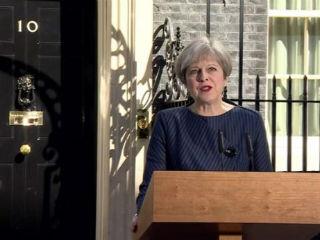The Prime Minister Theresa May has announced that a general election will take place in the United Kingdom on 8th June

The election is undoubtedly a risk for the Conservatives, but it also offers the opportunity for incredibly high rewards. The party enjoys now a working majority of just 17 seats, a margin that has proved highly susceptible to backbench revolts and coordinated attacks from the Labour Party.
by
N. Peter Kramer
She said to frame the election as an opportunity to "guarantee certainty and stability for the years ahead" and to strengthen the government's negotiating hand in the advancing Brexit negotiations. And indeed, the June 8th election a Conservative rule over the UK for a generation. Some pollsters are predicting the party would win an estimated 375 seats to Labour’s 189.
Explaining her dramatic change of heart on an early election – a call she had roundly dismissed as idle speculation before - Theresa May evoked Brexit, saying: "If we don't hold a general election now, the opposition’s political game-playing will continue and the negotiations with the European Union will reach their most difficult stage in the run up to the next general election… So we need a general election and we need one now. We have at this moment a one-off chance to get this done”. But the battle ahead will be probably an election unlike any in modern times.
While the Conservative Party presently enjoys a 20% lead over Labour in the opinion polls, both Theresa May and her party will now have to weather a campaign in which Britain's post-Brexit future will be debated and poured over in torturous detail. The election is undoubtedly a risk for the Conservatives, but it also offers the opportunity for incredibly high rewards. The party enjoys now a working majority of just 17 seats, a margin that has proved highly susceptible to backbench revolts and coordinated attacks from the Labour Party.
If, as the polls suggest, the Conservatives dramatically extend their majority, the Prime Minister’s hands will be strengthened in the field of both domestic and international policy. She is not only trying to break out of the problems caused by the opposition parties, but by the opposition within her own party who are increasingly open to the prospect of no deal with Brussels.
An electoral win and accompanying mandate for Theresa May is bad news for the EU. She would come into the negotiations swinging and sustained by new vigour.







